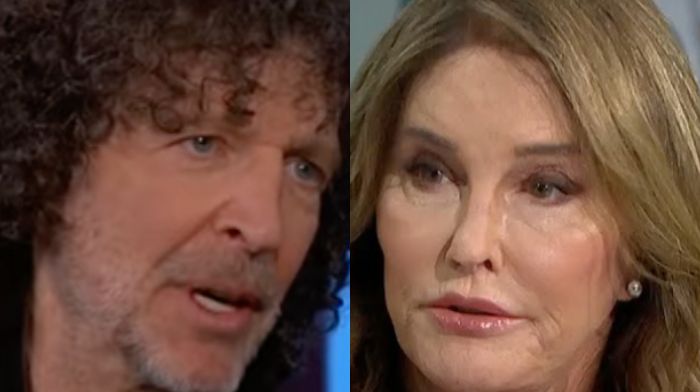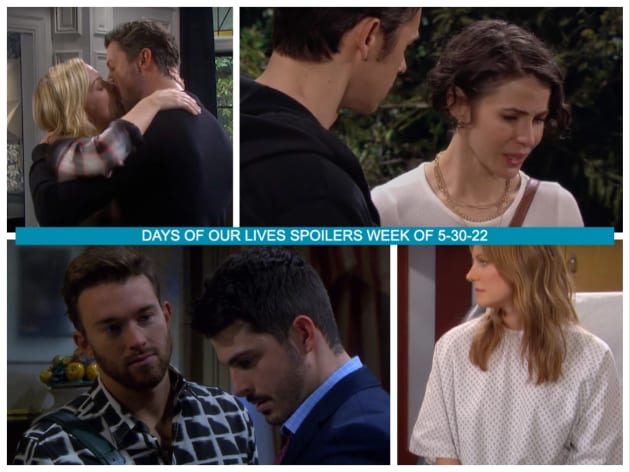Here’s a quick look at some notable books—new titles from Annie Proulx, Namwali Serpell, Hua Hsu, and more—that are publishing this week.
Want to learn more about upcoming titles? Then go read our most recent book preview. Want to help The Millions keep churning out great books coverage? Then become a member today.
Fen, Bog, and Swamp by Annie Proulx
Here’s what Publishers Weekly had to say about Fen, Bog and Swamp: “Pulitzer winner Proulx (Barkskins) sounds the alarm on the place of Earth’s wetlands in the climate crisis in this stunning account. In an attempt to ‘understand some of what has disappeared,’ Proulx lays out how ‘the history of wetlands is the history of their destruction.’ They’ve largely been drained for agricultural and housing purposes, she writes, and continuing that trend risks calamity, as wetlands’ peat layers contain huge quantities of methane and carbon dioxide that will be released if they’re destroyed. Her dire warnings are leavened with glimpses of potential hope, but the bigger picture is bleak: ‘The world needs the great swamps we have drained away and the few that still exist but the human impetus to develop and drain continues,’ she writes. Proulx’s prose is, as ever, stunning—in bogs, ‘black pools of still water in the undulating sphagnum moss can seem to be sinkholes into the underworld,’ and the Earth’s peatlands ‘resemble a book of wallpaper samples, each with its own design and character—some little more than water and reeds, others luxuriously diverse landscapes of colors we urban moderns never knew existed.’ This resonant ode to a planet in peril is tough to forget.”
The Furrows by Namwali Serpell
Here’s what Publishers Weekly had to say about The Furrows: “In the brilliant and impressionistic latest from Serpell (The Old Drift), a young woman traverses the trenches of grief that have shaped her life. Cassandra’s younger brother, Wayne, drowned at the beach when she was 12, and his body was never found. With the steadiness of water seeking its level, Serpell explores the parallel but distinct realities Cassandra and her parents inhabit, leading up to her postcollege years: she’s forever in therapy, her mother won’t admit Wayne has died, and her father leaves them to start a new life. Whenever Cassandra is asked to retell the story, she can’t make sense of it. In a breathtaking maneuver, Serpell resets the novel again and again, cycling through possible accidents that convey Cassandra’s shock: Wayne drowns, he’s hit by a car, he’s thrown from a carousel. Then, Cassandra meets an enigmatic man she seems to know is her brother by the light in his eyes. In a series of shocking twists, Serpell shatters comfortable ideas about grief and melds Cassandra’s glittering narrative shards into a searching, unforgettable story. It’s a considerable shift from the huge canvas of her previous work, and no less captivating.”
Sweet, Soft, Plenty Rhythm by Laura Warrell
Here’s what Publishers Weekly had to say about Sweet, Soft, Plenty Rhythm: “Warrell unfurls in her engaging debut the story of a peripatetic trumpet player. Circus Palmer, a touring 40-year-old jazz musician and lothario, has recently learned in Miami that his main love interest, drummer Maggie Swan, is pregnant. Circus, ever the ladies’ man, panics, rushing back to his home turf in Boston (‘It was the going he liked, liked the unclasping of links, liked getting to whatever was waiting at the other end of leaving,’ Warrell writes). His former wife, Pia, still quietly clinging to hope for reconciliation, manages to keep him involved in raising their 15-year-old daughter, Koko, who’s beginning to have her sexual awakening. Meanwhile, a long-awaited meeting with a producer ends badly for Circus, sending him on a bender. Soon thereafter, Circus, pining for Maggie, visits instead a girlfriend in Providence, a trip that irrevocably alters his future. The author evocatively describes the women who inspire Circus’s music and his lust—one brings his playing to ecstatic heights by shimmying her shoulders; another makes his horn ‘coo’ with her ‘girlish giggle’—and finds the sadness deep in his heart. Warrell hits all the right notes.”
Best of Friends by Kamila Shamsie
Here’s what Publishers Weekly had to say about Best of Friends: “Shamsie follows her Women’s Prize–winning Home Fire with a nuanced meditation on a lifelong friendship. In 1988 Karachi, best friends Zahra and Maryam, both 14, come of age in the last days of the Zia dictatorship. Zahra is bookish and middle class, while Maryam is worldlier and wealthier. One night they make an impulsive decision to get into a stranger’s car with their classmate Hammad. The girls have differing perspectives on what happened next, and Shamsie hints that there was danger. Then, after Benazir Bhutto is elected Prime Minister, the girls are swept up in the country’s wave of elation. The second half is set in 2019 London, where Zahra is head of the Center for Civil Liberties and Maryam is a venture capitalist. Their circumstances may have changed dramatically, but their friendship remains strong until the surprise reappearance of Hammad, who dredges up the fallout from that night in the car 30 years earlier. Though the revelations aren’t that surprising, Shamsie is perceptive when it comes to picking apart the nuances of the women’s shifting dynamic. It’s not the author’s best, but it shows her to be a consistently thoughtful writer.”
Motherthing by Ainslie Hogarth
Here’s what Publishers Weekly had to say about Motherthing: “Hogarth (The Boy Meets Girl Massacre (Annotated)) turns the tale of a haunting on its head in a masterfully crafted horror novel that’s by turns humorous and deeply unsettling. It opens as Abby Lamb and her husband, Ralph, return from the hospital after Ralph’s mother, Laura, died by suicide. For Abby, Laura’s demise is liberating; she never got along with her mother-in-law, whom she and Ralph moved in with years earlier, and Laura’s departure from their lives means they can finally start the family they’ve dreamed of. But Laura’s lingering influence assumes a tangible presence that thwarts her recovery efforts. As Ralph slips into a depressive funk under Laura’s ghost’s tight maternal grip, Abby grows increasingly desperate to exorcise Laura from their lives. Abby makes a wonderful narrator; full of wry insights and frothy humor, she fully engages reader sympathies—until revelations about her childhood with her own mother suggest that she may be projecting her troubled emotions onto others. This dark domestic drama packs a punch.”
Concerning My Daughter by Kim Hye-jin (translated by Jamie Chung)
Here’s what Publishers Weekly had to say about Concerning My Daughter: “Kim excavates the complexities of a mother and daughter’s relationship in her excellent debut. The unnamed narrator, a widow who works at a nursing home in South Korea, expresses a strong affinity for an elderly dementia patient named Jen. In contrast, the narrator feels only anger and resentment toward her own daughter, Green, who has recently moved back in with her, along with Green’s apparent lover, Lane, despite never asking permission to bring him along. Underlying the narrator’s anxiety is a sense of invisibility or smallness, which comes through in her stream-of-consciousness inner monologue as she deals with the pain caused by missteps and miscommunications between her and Green, who rejects her hope for her to have a husband and children. ‘Ma, Lane is my family,’ Green says. Later, while working with Jen, her mother thinks, ‘What’s the use of family? We all end up the same way.’ Kim skillfully depicts the vulnerability and fear underlying her protagonist’s anxiety and anger, laying bare the ways in which family dynamics are fluid and full of paradoxes. As the narrator reflects, ‘The child who sprang from my own flesh and blood is perhaps the creature I’m most distant from.’ Kim’s compassionate portrayal of the narrator’s contradictions and ever-changing feelings makes her project captivating and moving. Readers will be grateful to discover this new author.”
Stay True by Hua Hsu
Here’s what Publishers Weekly had to say about Stay True: “New Yorker staff writer Hsu braids music, art, and philosophy in his extraordinary debut. As a second-generation Taiwanese American coming of age in 1990s Cupertino, Calif., Hsu traversed an evolving cultural climate with rebellious gusto, finding creative expression in zines and developing, as he writes, a ‘worldview defined by music.’ At UC Berkeley Hsu met Ken, an extroverted, ‘mainstream’ frat-brother whose only similarity to Hsu was that he was Asian American. Yet despite their differences, an unlikely friendship bloomed. In lyrical prose punctuated with photos, Hsu recalls smoke-filled conversations—from the philosophy of Heidegger to the failures of past relationships—trolling chat rooms and writing a movie script with Ken as they navigated a world teeming with politics and art, and basked in the uncertainty of a future both fearsome and enthralling. That future came to a harrowing end when Ken was murdered, leaving Hsu to fend for himself while unraveling the tragedy. As he recounts sinking into songs ‘of heartbreak and resurrection,’ Hsu parses the grief of losing his friend and eloquently captures the power of friendship and unanswerable questions spurred in the wake of senseless violence. The result is at once a lucid snapshot of life in the nineties, an incredible story of reckoning, and a moving elegy to a fallen friend.”

























































